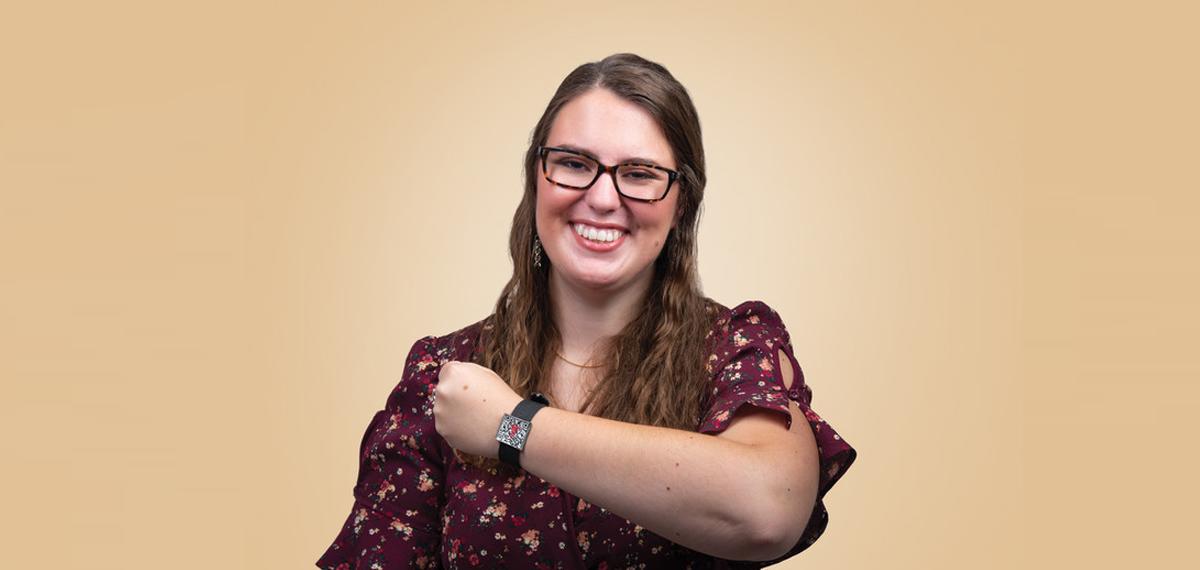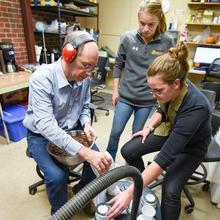
When Katelyn France was 14, she saw an advertisement for a medical ID bracelet that cost $200 and allowed for only four lines of text. She was perplexed.
"Four lines is all you’re supposed to get to save someone’s life in a medical emergency?" she recalls thinking. She told her high school science teacher that she could design a better—and cheaper—bracelet. He challenged her to do it. And she did.
While still in high school, France, who is now preparing for her senior year at the University of Minnesota Duluth, equipped a bracelet with a QR code after she discovered that the little square images could be read by any smartphone camera and linked to medical information stored online. She learned how to write code—“it took a lot of Googling and trial and error,” she says. Within a year, she had a prototype: a QR code printed on a square piece of metal that was duct-taped to an old watchband.
By the time she arrived at UMD, she’d refined the design (the bracelet costs about $5 to manufacture) and filed for patents. Today, the bracelet is known as MAQR, or the Medical Assistance via Quick Response Code. Through research alongside UMD biomedical engineering professor Victor Lai, France has continued to add to the bracelet’s life-saving functionality. Her plan is to put it on the market after she graduates.
The German and biochemistry major says scholarship support enables her to explore her entrepreneurial interests because she doesn’t carry a heavy financial burden. In fact, she plans to stay at UMD after she graduates next year to pursue a doctorate degree in pharmacy and a master’s of public health.
And of course, she has more ideas she wants to explore: "I love to make stuff work better."

